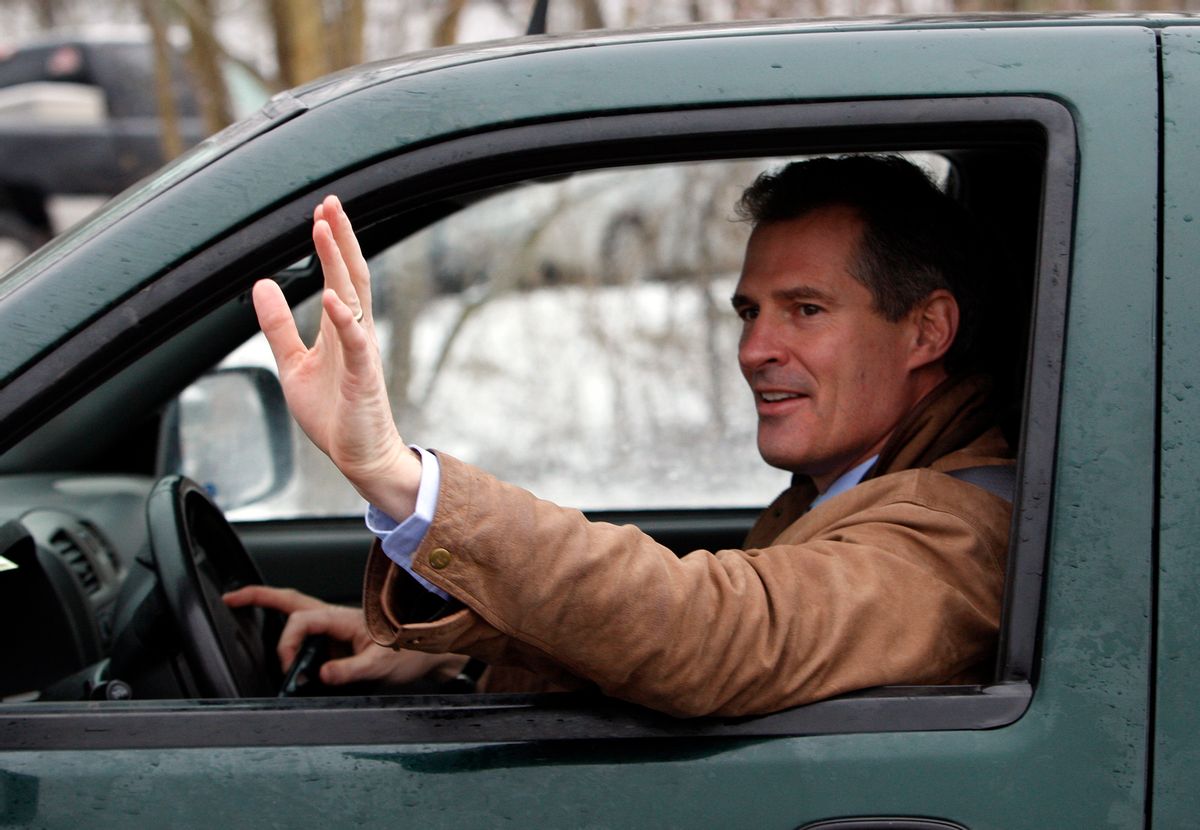President Obama is now, finally, getting tough on Wall Street. Today he’s giving his support to two measures critically important for making sure the Street doesn’t relapse into another financial crisis: (1) separating the functions of investment banking from commercial banking (basically, resurrecting the Depression-era Glass-Steagall Act) so investment banks can’t gamble with insured commerial deposits, and (2) giving regulatory authorities power to limit the size of big banks so they don’t become "too big to fail," as antitrust laws do with every other capitalist entity. A few days ago the White House demanded that the biggest banks repay the $120 billion or so still owed the government from the bailout.
All good, all correct, all important. The President deserves at least two cheers. Why not three? It took him over a year to finally get here. The House has already completed its work on financial reform and may be reluctant to start over. The Senate is in disarray since Chris Dodd, chair of the Banking Committee, announced recently he wouldn’t seek reelection, and is poised to compromise with Wall Street on a number of big issues. Neither chamber has shown any interest whatsoever in resurrecting Glass-Steagall or limiting the size and risk of big banks. In other words, much of the game is over.
It’s possible, of course, that Congress could go along with Obama’s new proposals. A populist backlash against the big banks is growing among Americans who can’t understand why Wall Street is back to its old ways even though most Americans are worried about losing their jobs and homes as a result of Wall Street’s massive implosion in 2008. And they’ve never been able to understand why taxpayers bailed out Wall Street while Main Street still languishes.
A cynic might conclude that Obama’s born-again populism is for the cameras. Scott Brown’s upset victory in Massachusetts revealed the strength of I’m-mad-as-hell populism in the electorate right now. Add in the $150 billion of bonuses the Street is about to bestow on itself and the outrage meter could blow. With sky-high unemployment and surly voters, Democrats have to show they’re on the side of the people, not the powerful, as Al Gore put it in the last days of the 2000 election (too late to help himself).
For almost a year now, Democratic pollsters have been pointing out how much the public hates the bank bailout and despises Wall Street. But there was no reason for Democratic leaders in Congress or the White House to pay much attention. After all, it was a Republican president and a Republican Congress that came up with the bank bailout plan to begin with. Some stalwart Republicans had grumbled about it, of course, but Republicans have always been on the side of Wall Street and big business and weren’t likely to call for strong measures to prevent the Street from getting into trouble again.
Larry Summers and Tim Geithner scuttled Paul Volcker’s plan to separate the banks’ commercial and investment functions, and didn’t want to limit the size of banks or the risks they could take on. Summers and Geithner have wanted to get the banks back to profitability as soon as possible. And Dems in Congress have had no stomach to take on Wall Street, a major source of campaign funding.
But suddenly the winds are blowing in a different direction over the Potomac. The 2010 midterms are getting closer, and the Dems are scared. Their polls are plummeting. The upsurge in mad-as-hell populism requires that Democrats become indignant on behalf of Americans, and indignation is meaningless without a target. They can’t target big government because Republicans do that one better, especially when they’re out of power. So what’s the alternative? Wall Street.
Perhaps I’m being too cynical. Maybe the Obama and congressional Democrats are now ready to give up Wall Street trickle-down economics and focus on Main Street trickle-up. "There are two ideas of government," said William Jennings Bryan at the Democratic National Convention in Chicago in 1896. “There are those who believe that you just legislate to make the well-to-do prosperous, that their prosperity will leak through on those below. The Democratic idea has been that if you legislate to make the masses prosperous their prosperity will find its way up and through every class that rests upon it.” He couldn’t have said it better.



Shares